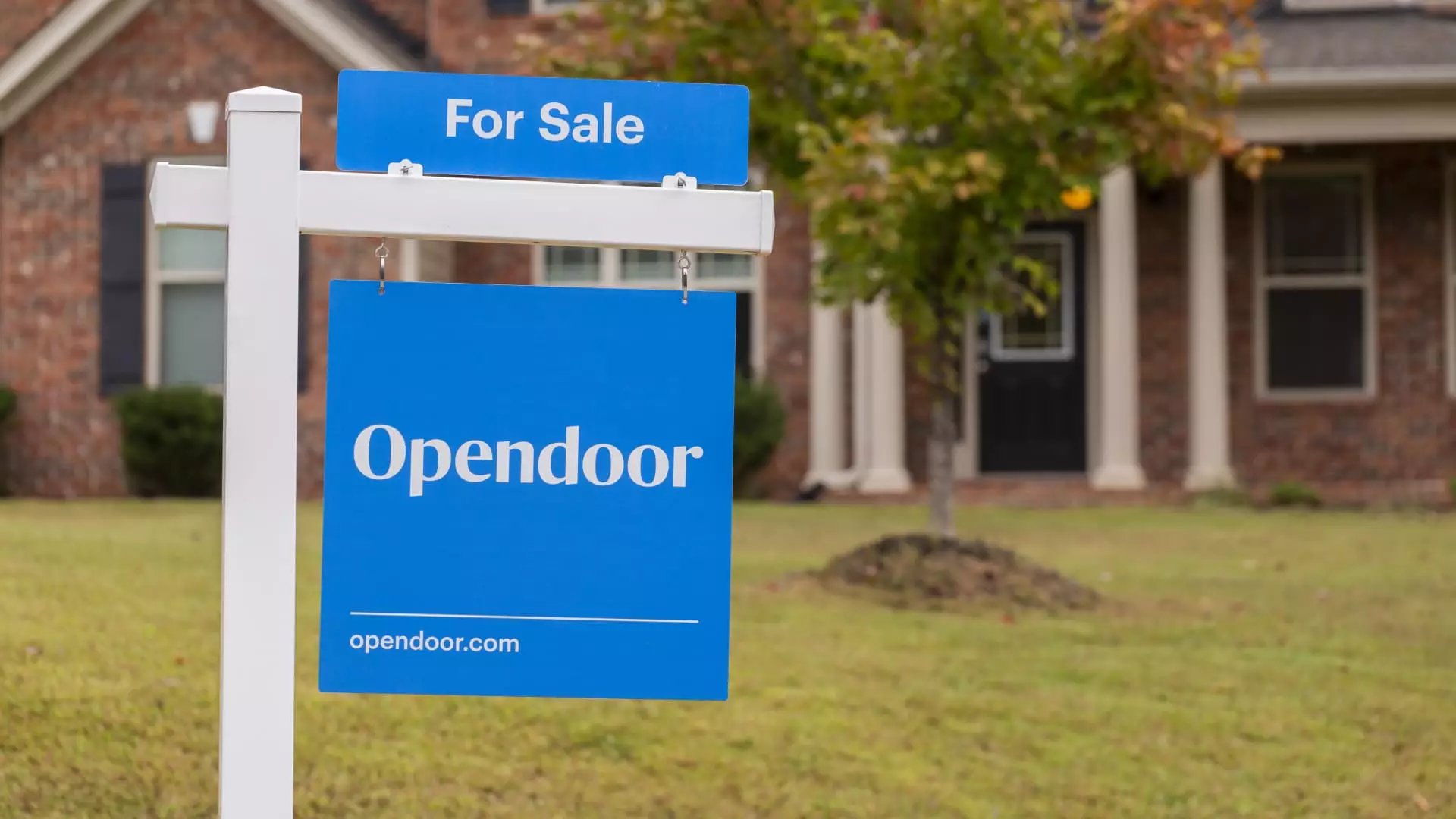Opendoor’s recent surge in stock price, fueled by managerial shuffle and speculative enthusiasm, masks a fundamentally unstable and misguided business model. The company’s core premise—leveraging technology to buy and sell homes for profit—seems innovative on the surface but, in reality, stands on shaky financial ground. The sharp rise and startling volatility reflect a market seduced by hype rather than a genuine indication of sustainable growth. Since its IPO via SPAC in 2020, Opendoor has repeatedly shown that its reliance on transient market trends, unpredictable housing prices, and volatile mortgage rates exposes it to monumental risks. The company’s decision to greatly pare down acquisitions, from 3,504 homes in the third quarter of 2024 to just 1,200 in the subsequent quarter, underscores its internal crisis rather than any strategic triumph.
What this indicates is a company desperately trying to cling to a growth narrative that no longer withstands economic pressures. The narrative pushed by aggressive investors like hedge fund manager Eric Jackson, who claims the stock could multiply a hundredfold, is a reckless gamble that ignores the fragility of Opendoor’s foundation. This obsession with exponential gains ignores the reality that the housing market is cyclical, heavily influenced by economic policies, interest rate fluctuations, and consumer sentiment—all factors that Opendoor seemingly cannot control. At its core, the company’s business model is overly dependent on a buoyant housing market, making it inherently vulnerable in turbulent economic conditions.
Leadership Turmoil Reflects Deeper Instability
The resignation of CEO Carrie Wheeler further exposes the company’s tumultuous condition under leadership that appears disconnected from the realities of its financial and operational vulnerabilities. Wheeler’s departure is being spun as a strategic move—an attempt to “accelerate succession plans”—but it also signals internal chaos. Her leadership was scrutinized after the latest earnings failed to inspire investor confidence, revealing that unilateral moves or leadership changeovers might not be enough to right the sinking ship.
The appointment of Shrisha Radhakrishna as interim president and the declaration that a new CEO is being sought are symptomatic of a broader leadership crisis. This instability hampers Opendoor’s ability to implement a coherent, long-term strategy. Investors should view this as a sign that the company lacks the internal cohesion necessary to navigate a shrinking market and rising economic headwinds. Leadership that flits between drastic changes rather than steady strategic planning reflects a company grasping at straws rather than adopting a disciplined, realistic approach to growth.
Speculative Fervor Undermines Genuine Stability
Opendoor’s case demonstrates how speculative fervor, fueled by aggressive investors and market hype, can distort the reality of a company’s prospects. The spike in stock price—more than sixfold since its nadir—was driven largely by outsiders, including notable individuals like Jackson and Rabois, who appear more interested in riding the wave of market excitement than in supporting sustainable business practice.
The phenomenon of retail investors and hedge funds hyping a company with a largely unproven business model raises serious concerns. It reveals a tendency among market participants to prioritize short-term gains over long-term stability, ignoring the underlying vulnerabilities. Such behavior fosters a bubble mentality that can burst unexpectedly, leaving many investors holding worthless shares and an organization still fundamentally flawed. It also underscores a lack of responsible governance—where hype and rapid valuation take precedence over prudence.
In essence, Opendoor’s volatile stock performance is a reflection not only of its precarious financial health but also of a market increasingly driven by speculative enthusiasm rather than sound fundamentals. When leadership changes are motivated more by market pressures and outsider bets than sincere strategic reform, the company remains susceptible to a further cycles of boom and bust.
A Cautionary Tale for Liberal-Centered Market Approaches
From a center-left perspective, Opendoor’s saga should serve as a cautionary tale about the perils of unchecked market enthusiasm and deregulated corporate governance. It questions the belief that rapid technological innovation and deregulation alone will ensure sustainable success. Instead, it highlights the necessity for prudent oversight, long-term planning, and corporate responsibility—qualities often sacrificed in the pursuit of quick profits.
While the company claims to be innovating within the real estate sector, the reality is more sobering: without robust regulatory frameworks and thoughtful leadership, companies like Opendoor risk destabilizing markets further, impacting countless homeowners and consumers who rely on stable housing values. As markets become increasingly unpredictable, the importance of balanced oversight and corporate accountability becomes undeniable. Rushing headlong into untested models, buoyed by speculative investors, only magnifies systemic vulnerabilities—something society cannot afford, especially in a sector as vital as housing.
Opendoor’s current trajectory underscores that technological innovation must be matched with responsible management and realistic expectations. Otherwise, what appears to be a promising disruptor risks becoming a cautionary example of reckless venture capitalism—short-sighted, volatile, and ultimately unsustainable.

